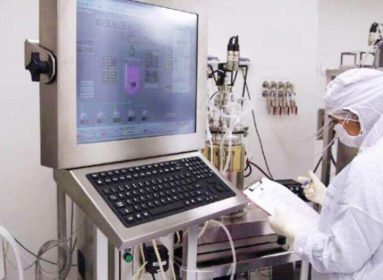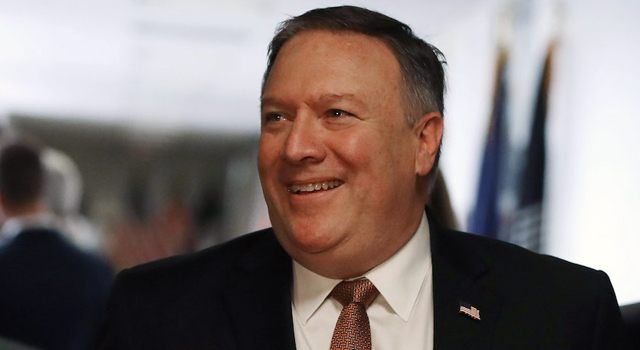Texas rabbi says many Marranos living in the Southwest are returning to Judaism
By Cindy Mindell
FAIRFIELD – Many American Jews have heard about Marranos but have never met a descendant. For El Paso-based Rabbi Stephen Leon, encounters are a daily occurrence.
There are several communities of crypto-Jews – descendants of forcibly converted Jews who have maintained some Jewish traditions – across much of the Spanish-speaking world; in the U.S., they live mainly in El Paso and throughout New Mexico. Many are discovering their Jewish roots and exploring a journey back to Judaism.
Rabbi Leon will talk about the phenomenon at Congregation Beth El in Fairfield on Sunday, Oct. 14.
A Brooklyn native, Leon grew up in Bridgeport, where his father, David Leon, served as cantor of Congregation Rodeph Sholom for 30 years. He graduated from Columbia University and the Jewish Theological Seminary. After receiving ordination from the Academy for Jewish Religion in Yonkers, he served as dean of the school from 1974 to 1986, where he also taught homiletics, practical rabbinics, and cantillations. He served as rabbi of the Elmwood Park Jewish Center in Elmwood Park, N.J. from 1971 to 1986 and as president of the Bergen County Board of Rabbis (New Jersey) and was on the board of the United Jewish Federation of Bergen County.
Leon became spiritual leader of Congregation B’nai Zion in El Paso, Tex. in 1986. Since then, he has been involved in outreach to the B’nei Anousim [“children of the forced (converts)”], or crypto-Jews, of the Southwest. He serves on the board of the El Paso Holocaust Museum and teaches “Introduction to Judaism” at the University of Texas at El Paso. He is also a board member of Kulanu, a non-profit organization that supports isolated and emerging Jewish communities around the world, many of which have long been disconnected from the worldwide Jewish community.
In 1999, Leon received a grant from the El Paso Community Foundation to visit communities throughout Europe where crypto-Jews have lived, including Belmonte, Portugal, where 300 crypto-Jews have formally returned to Judaism.
At the 2009 United Synagogue for Conservative Judaism Biennial Convention, members passed a resolution presented by Leon, “Welcoming B’nai Anousim to Judaism and Memorializing the Spanish Inquisition as Part of Tisha B’Av Observances.”
Leon spoke with the Ledger about how he became involved with this community, and how and why descendants of forced converts are now returning to Judaism.
Q: How did you first become aware of the crypto-Jewish community?
A: In 1986, I met a man from Juarez, Tex. who came to see me after his grandmother had died. He was a Catholic and told me that she had always lit candles on Friday night – he was 40 and remembered this tradition since age three, but he never knew why she did it. His mother did not want to continue the tradition and he was obsessed: he found this so disrespectful of Grandma.
He went to a priest who told him that there are hundreds of women in Juarez who light candles on Friday night, and that he should call a rabbi. There was no synagogue in Juarez so he called me. I asked him, “Do you know that this is a Jewish tradition?” and I just thought it was something out of the blue. He said that his family’s lineage went back to Spain and I realized that Jews were hiding their identity while carrying on certain traditions.
A couple of days later, a woman called me and said that her aunt had died and the family is Catholic and when they had come back to the house after the funeral, all the mirrors were covered and the family members were sitting on low benches and eating round objects including bagels and eggs. She asked why this was being done for her aunt and was told that she had Jewish roots but didn’t know what the rituals meant.
There was episode after episode like these. It’s very common for Anousim not to eat pork. It is a forbidden food and they don’t know why. Even though they may take Sunday as their Sabbath, some refuse to work on Shabbat or they dress up. Trudi Alexy, author of “The Mezuzah in the Madonna’s Foot: Marranos and Other Secret Jews – A Woman Discovers Her Spiritual Heritage,” spoke at our synagogue, about the phenomenon of Anousim who keep a statue of the Madonna in the doorways of their homes and slip the mezuzah in the foot. They can kiss the foot without arousing suspicions. There were a few audience-members who had an Anousim background and the talk woke up memories for them.
Q: Who else is working with this community?
A: After people started coming to me with questions, I called my friends in the Conservative, Reform, and Orthodox movements and no one was working with Marranos or crypto-Jews, except for one Reform rabbi in Phoenix. Since that time, I have found more rabbis working with this community, but very few.
Now, I’m one of six rabbis involved in the return of the Anousim. Since I’ve been in El Paso, I’ve brought back to Judaism approximately 60 families, some from El Paso, some from other places in the Southwest where there is no other Jewish community, so people must find some kind of Jewish connection. More than anything, they hear of me by word of mouth.
Q: On a broader level, how much awareness and activity is there regarding the Anousim?
A: In August, the ninth annual Anousim Conference was held at our synagogue, and the 22nd annual conference of the Society for Crypto-Judaic Studies was held in Albuquerque in July. A year ago, a group of B’nai Anousim visited the Kotel on Tisha B’Av, the day our ancestors were expelled from Spain.
The resolution passed in 2009 by the Conservative movement to use Tisha B’Av as a way to educate about the Anousim and the Inquisition, in addition to the destruction of the Temple, has led to the creation of more educational materials. I would say that minimally, 10 percent of the Hispanic population in the U.S. have Jewish roots and don’t know it.
I work mostly in the Southwest, where descendants of Anousim have settled. In places like South America, Latin America, Mexico, and Portugal, there are other rabbis fluent in Spanish who work with the communities. Rabbi Juan Mejia, a rabbi in Oklahoma City, is himself a descendant and was going to be a Catholic priest before he learned of his Jewish roots and instead ended up receiving ordination at JTS. He works in his native Bogotá, Colombia with a community of practicing Catholics who have Jewish roots.
Anousim are beginning to get recognition from Israel. There is an organization in Jerusalem, Shavei Yisrael [returnees to Israel], founded and run by Jerusalem Post columnist and correspondent Michael Freund, that helps B’nai Anousim and others return to their roots. One of my modern-day heroes is Nissan ben Avraham, born Nicolau Aguiló, who lived in Majorca as a Catholic and found out that he had Jewish roots. He was eventually ordained as an Orthodox rabbi in Israel, and Shavei Yisrael sent him back to Majorca to work with the crypto-Jewish community there.
Q: What is the process of “returning to Judaism” for these crypto-Jews?
A: First, a person has to meet and study with me personally or over the phone because none of the communities where crypto-Jews live has a synagogue. Because of this taboo we have on proselytizing, I am of the belief that if people are happy with their Christianity, let them be happy – but they want to know about their Jewish roots. There are some people who take lessons and that’s it. But if they want to embrace Judaism, they have to go through conversion. This is not proselytizing, but rather bringing back those whose ancestors were forcibly converted away from Judaism.
I am a big critic of, and do not really appreciate, the Jews for Jesus or Messianic Jewish movements. However, in the case of crypto-Jews in the Southwest, some have started their journey at a “Messianic” – and I use quotation marks – synagogue because they are told that they can keep their comfort zone and be Jewish. But many realize that, when you refer to Yeshua [Jesus] and are lighting candles on Friday night, that is Christianity, and that they have been misled. But it can serve as a stepping-stone. Many have left that community because they felt it was a different form of persuasive Christian proselytizing.
These people come from families who have been practicing Catholics or other Christian denominations for 500 years, so if they even look into finding their Jewish roots, they are often criticized by family and friends. If they do a conversion or a return, they find rejection because they’re seen as giving up salvation. There are a lot of psychological problems they have to deal with. Not every mainstream synagogue is friendly or welcoming because when you greet a newcomer to your congregation, you may ask where he or she has attended synagogue. If the answer is a church or a Messianic synagogue, there is a fear that these people are there to proselytize.
Q: What do you hope to accomplish next in your work with the B’nai Anousim?
A: I have had several dreams: to get the Tisha B’Av resolution passed; to bring a group of Anousim to Israel on Tisha B’Av; and to get an Anousim educational center off the ground at our synagogue. I’m writing a book on the subject, and there is some interest in creating a documentary film on children of the Inquisition.
Q: Finally, it sounds like your own last name – “Leon” – may have Spanish origins. Is that so?
A: Yes,— although my grandparents were all from Eastern Europe, my dad started doing research, as have I, and we believe that “Leon” might have been “De Leon,” and since many of my paternal grandfather’s ancestors and he had the Hebrew name Moshe, I could have been related to Moshe De Leon, of Spain—the author of the Zohar, one of the founders of Kabbalah.
Rabbi Stephen Leon will discuss “Crypto-Jews of the Southwest” on Sunday, Oct. 14, 9 a.m., at Congregation Beth El, 1200 Fairfield Woods Road, Fairfield. For information call (203) 374-5544.
Comments? Email cindym@jewishledger.com.








 Southern New England Jewish Ledger
Southern New England Jewish Ledger











